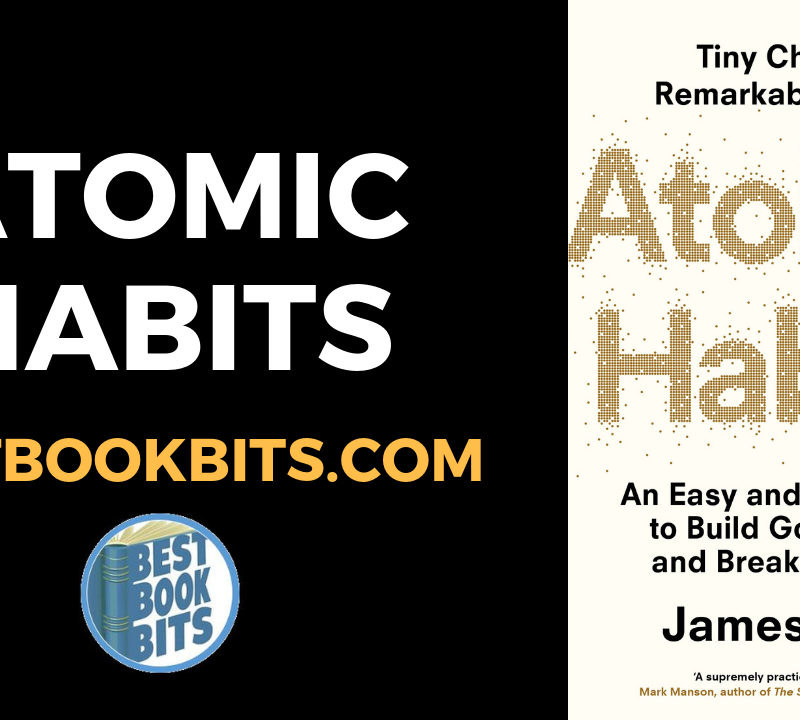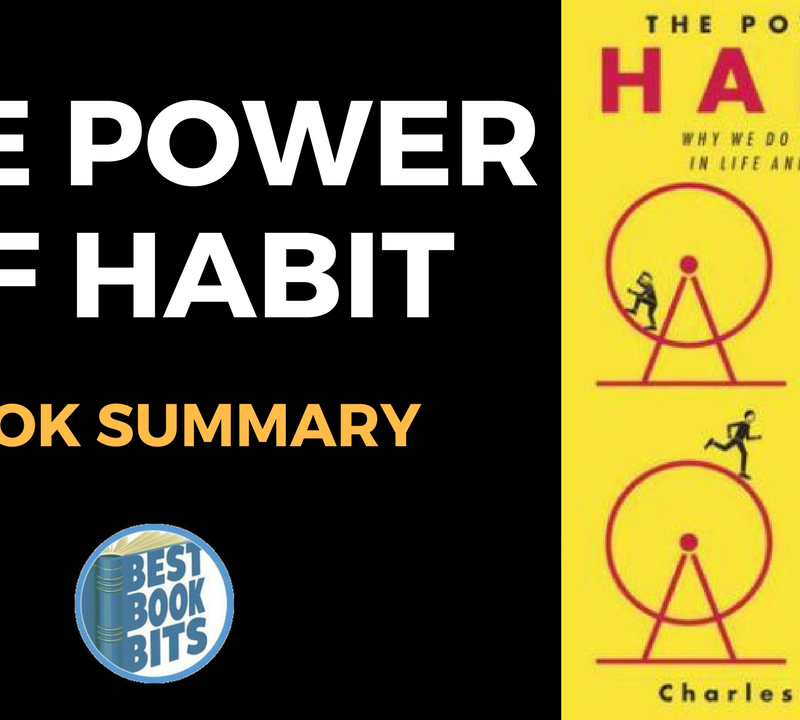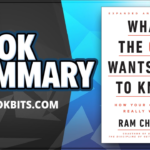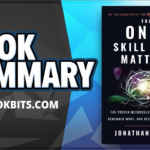***JOIN THE BESTBOOKBITS BOOK CLUB HERE ***
***GET SUMMARIES DELIVERED BY EMAIL WHEN RELEASED ***
Listen on Apple Podcast
Listen on Spotify
PART ONE: PARADIGMS AND PRINCIPLES
Inside-Out
- Interdependence is a higher value than independence.
- There is no real excellence in all this world which can be separated from right living. (David Starr Jordan)
- If we wanted to change the situation, we first had to change ourselves. And to change ourselves effectively, we first had to change our perceptions.
- Your attitude determines your altitude.
- Smiling wins more friends than frowning.
- Whatever the mind of man can conceive and believe it can achieve.
- What you are shots so loudly in my ears I cannot hear what you say. (Ralph Waldo Emerson)
- There are, of course, situations where people have character strength but they lack communication skills, and that undoubtedly affects the quality of relationships as well. But the effects are still secondary.
- What we are communicates far more eloquently than anything we say or do.
- Into the hands of every individual is given a marvellous power for good or evil – the silent, unconscious, unseen influence of his life. This is simply the constant radiation of what man really is, not what he pretends to be. (William George Jordan)
- Each of us has many, many maps in our head, which can be divided into two main categories: maps of the way things are, or realities, and maps of the way things should be, or values. We interpret everything we experience through these mental maps. We seldom question their accuracy; we’re usually even unaware that we have them. We simply assume that the way we see things is the way they really are or the way they should be.
- And out attitudes and behaviours grow out of those assumptions. The way we see things is the source of the way we think and the way we act.
- Each of us tends to think we see things as they are, that we are objective. But this is not the case. We see the world, not as it is, but as we are – or, as we are conditioned to see it. When we open our mouths to describe what we see, we in effect describe ourselves, our perceptions, our paradigms.
- The more aware we are of our basic paradigms, maps, or assumptions, and the extent to which we have been influenced by our experience, the more we can take responsibility for those paradigms, examine them, test them against reality, listen to others and be open to their perceptions, thereby getting a larger picture and a far more objective view.
- Many people experience a fundamental shift in thinking when they face a life-threatening crisis and suddenly see their priorities in a different light, or when they suddenly step into a new role, such as that of husband or wife, parent or grandparent, manager or leader.
- Paradigms are powerful because they create the lens through which we see the world. The power of a paradigm shift is the essential power of quantum change, whether that shift is an instantaneous or a slow and deliberate process.
- Principles are like lighthouses. They are natural laws that cannot be broken.
- It is impossible for us to break the law. We can only break ourselves against the law. (Cecil B. deMille)
- To relate effectively with a wife, a husband, children, friends, or working associates, we must learn to listen. And this requires emotional strength. Listening involves patience, openness, and the desire to understand – highly developed qualities of character.
- Albert Einstein observed, “The significant problems we face cannot be solved at the same level of thinking we were at when we created them.”
- Focus first on primary greatness of character.
- Private victories preceded public victories, that making and keeping promises to ourselves preceded making and keeping promises to others. It says it is futile to put personality ahead of character.
- We must not cease from exploration and the end of all out exploring will be to arrive where we began and to know the place for the first. (T.S. Eliot)
THE SEVEN HABITS – AN OVERVIEW
- We are what we repeatedly do. Excellence, then, is not an act, but a habit. (Aristotle)
- Our character, basically, is a composite of our habits. “Sow a thought, reap an action; sow na action, reap a habit; sow a habit, reap a character; sow a character, reap a destiny,” the maxim goes. Habits are powerful factors in our lives. Because they are consistent, often unconscious patterns, they constantly, daily, express our character and produce our effectiveness…or ineffectiveness.
- Habits are like a cable. We weave a strand of it everyday and soon it cannot be broken. (Horace Mann)
- For our purposes, we will define a habit as the intersection of knowledge, skill, and desire. Knowledge is the theoretical paradigm, the what to do and the why. Skill is the how to do. And desire is the motivation, the want to do. In order to make something a habit in our lives, we have to have all three.
***JOIN THE BESTBOOKBITS BOOK CLUB HERE ***
***GET SUMMARIES DELIVERED BY EMAIL WHEN RELEASED ***
Listen on Apple Podcast
Listen on Spotify
- On the maturity continuum, dependence is the paradigm of you – you take care of me; you come through for me; you didn’t come through; I blame you for the results. Independence is the paradigm of I – I can do it; I am responsible; I am self-reliant; I can choose. Interdependence is the paradigm of we – we can do it; we can cooperate; we can combine our talents and abilities and create something greater together. Dependent people need others to get what they want. Independent people can get what they want through their own effort. Interdependent people combine their own efforts with the efforts of others to achieve their greatest success.
- True effectiveness is a function of two things: what is produced (the golden eggs) and the producing asset or capacity to produce (the goose).
- Effectiveness lies in the balance – what I call the P/PC Balance. P stands for production of desired results, the golden eggs. PC stand for production capability, the ability or asset that produces the golden eggs.
- There are three kinds of assets: physical, financial, and human.
- Our most important financial asset is our own capacity to earn. If we don’t continually invest in improving our own PC, we severely limit our options.
- No one can persuade another to change. Each of us guards a gate of change that can only be opened from the inside. We cannot open the gate of another, either by argument or by emotional appeal. (Marilyn Ferguson)
- Whatever your present situation, I assure you that you are not your habits. You can replace old patterns of self-defeating behaviour with new patterns, new habits of effectiveness, happiness, and trust-based relationships.
- That which we obtain too easily, we esteem too lightly. It is dearness only which gives everything its value. Heaven knows how to put a proper price on its goods. (Thomas Paine)
- Whatever your present situation, I assure you that you are not your habits. You can replace old patterns of self-defeating behaviour with new patterns, new habits of effectiveness, happiness, and trust-based relationships.
PART TWO: PRIVATE VICTORY
Habit 1: Be Proactive: Principles of Personal Vision
- I know of no more encouraging fact than the unquestionable ability of man to elevate his life by conscious endeavour. (Henry David Thoreau)
- We are not our feelings. We are not our moods. We are not ever our thoughts. The very fact that we can think about these things separates us from them and from the animal world. Self-awareness enables us to stand apart and examine even the way we “see” ourselves – our self-paradigm, the most fundamental paradigm of effectiveness. It affects not only our attitudes and behaviours, but also how we see other people. It becomes our map of the basic nature of mankind.
- Between stimulus and response, man has the freedom to choose. Within the freedom to choose are those endowments that make us uniquely human. In addition to self-awareness, we have imagination – the ability to create in our minds beyond our present reality. We have conscience – a deep inner awareness of right and wrong, of the principles that govern our behaviour, and a sense of the degree to which our thoughts and actions are in harmony with them. And we have independent will – the ability to act based on our self-awareness, free of all other influences.
- The first and most basic habit of a highly effective person in any environment, the habit of proactivity.
- It means more than merely taking initiative. It means that as human beings, we are responsible for our own lives. Our behaviour is a function of our decisions, not our conditions. We can subordinate feelings to values. We have the initiative and the responsibility to make things happen.
- Look at the word responsibility – “response-ability” – the ability to choose your response. Highly proactive people recognize that responsibility. They do not blame circumstances, conditions, or conditioning for their behaviour. Their behaviour is a product of their own conscious choice, based on values, rather than a product of their conditions, based on feeling.
- Reactive people are often affected by their physical environment. If the weather is good, they feel good. If it isn’t, it affects their attitude and their performance. Proactive people can carry their own weather with them. Whether it rains or shines makes no difference to them. They are value driven; and if their value is to produce good quality work, it isn’t a function of whether the weather is conducive to it or not.
- No one can hurt you without your consent. (Eleanor Roosevelt)
- They cannot take away our self-respect if we do not give it to them. (Gandhi)
- Until a person can say deeply and honestly, “I am what I am today because of the choices I made yesterday,” that person cannot say, “I choose otherwise.”
- It’s not what happens to us, but our response to what happens to us that hurts us. Of course, things can hurt us physically or economically and can cause sorrow. But our character, our basic identity, does not have to be hurt at all.
- Victor Frankl suggests that there are three central values in life – the experiential, or that which happens to us; the creative, or that which we bring into existence; and the attitudinal, or our response in difficult circumstances such as terminal illness.
- The highest of the three values is attitudinal, in the paradigm or reframing sense. In other words, what matters most is how we respond to what we experience in life.
- Taking initiative does not mean being pushy, obnoxious, or aggressive. It does mean recognizing our responsibility to make things happen.
- If our feelings control out actions, it is because we have abdicated our responsibility and empowered them to do so.
- Proactive people make love a verb. Love is something you do: the sacrifices you make, the giving of self, like a mother bringing a newborn into the world. If you want to study love, study those who sacrifice for others, even for people who offend or do not love in return. If you are a parent, look at the love you have for the children you scarified for. Love is a value that is actualized through loving actions. Proactive people subordinate feelings to values. Love, the feeling, can be recaptured.
- Proactive people focus their efforts in the Circle of Influence. They work on the things they can do something about. The nature of their energy is positive, enlarging and magnifying, causing their Circle of Influence to increase. Reactive people, on the other hand, focus their efforts in the Circle of Concern. They focus on the weakness of other people, the problems in the environment, and circumstances over which they have no control. Their focus results in blaming and accusing attitudes, reactive language, and increased feelings of victimization. The negative energy generated by that focus, combined with neglect in areas they could do something about, causes their Circle of Influence to shrink.
- Direct, indirect, and no control. The problem we face in one of three areas: direct control (problems involving our own behaviour); indirect control (problems involving other people’s behaviour); or no control (problems we can do nothing about, such as our past or situational realities). The proactive approach puts the first step in the solution of all three kinds of problems within our present Circle of Influence.
- Direct control problems are solved by working on our habits.
- Indirect control problems are solved by changing our methods of influence.
- No control problems involve taking the responsibility to change the line on the bottom on our face – to smile, to genuinely and peacefully accept these problems and learn to live with them, even though we don’t like them. In this way, we do not empower these problems to control us.
- Lord, give me the courage to change the things which can and ought to be changed, the serenity to accept the things which cannot be changed, and the wisdom to know the difference. (Alcoholics Anonymous prayer)
- It’s the nature of reactive people to absolve themselves of responsibility. It’s so much safer to say, “I am not responsible.” If I say “I am responsible,” I might have to say, “I am irresponsible.”
- Anytime we think the problem is “out there,” that thought is the problem.
- The proactive approach is to change from the inside-out: to be different, and by being different, to effect positive change in what’s out there – I can be more resourceful, I can be more diligent, I can be more creative, I can be more cooperative.
- The most positive way I can influence my situation is to work on myself, on my being.
- Sometimes the most proactive thing we can do is to be happy, just to genuinely smile. Happiness, like unhappiness, is a proactive choice.
- Success is on the far side of failure. (IBM founder T. j. Watson)
- The power to make and keep commitments to ourselves is the essence of developing the basic habits of effectiveness.
- We are responsible for our own effectiveness, for our own happiness, and ultimately, I would say, for most of our circumstances.
- The fountain of content must spring up in the mind, and he who hath so little knowledge of human nature as to seek happiness by changing anything but his own disposition, will waste his life in fruitless efforts and multiply the grief he proposes to remove. (Samuel Johnson)
- Listen to your language of the people around you. How often do you use and hear reactive phrases such as “If only,” I can’t,” or “I have to”?
Habit 2: Begin with the end in mind: Principle of Personal Leadership
- What lies behind us and what lies before us are tiny matters compared to what lies within us. (Oliver Wendell Holmes)
- To begin with the end in mind means to start with a clear understanding of your destination. It means to know where you’re going so that you better understand where you are now and so that the steps you take are always in the right direction.
- It’s incredibly easy to get caught up in an activity trap, in the busy-ness of life, to work harder and harder at climbing the ladder of success only to discover it’s leaning against the wring wall. It is possible to be busy – very busy – without being very effective.
- Begin with the end in mind is based on the principle that all things are created twice. There’s a mental or first creation, and a physical or second creation to all things.
- Management is doing things right; leadership is doing the right things. (Peter Drucker and Warren Bennis)
- Efficient management without effective leadership is, as one individual has phrased it, “like straightening deck chairs on the Titanic.” No management success can compensate for failure in leadership. But leadership is hard because we’re often caught in a management paradigm.
- I’m convinced that too often parents are also trapped in the management paradigm, thinking of control, efficiency, and rules instead of direction, purpose, and family feeling. And leadership is even more lacking in our personal lives. We’re into managing with efficiency, setting and achieving goals before we have even clarified our values.
- Through imagination, we can visualize the uncreated worlds of potential that lie within us. Through conscience, we can come in contact with universal laws or principles with our own singular talents and avenues of contribution, and with the personal guidelines within which we can most effectively develop them. Combined with self-awareness, these two endowments empower us to write our own script.
- Real success is success with self. It’s not in having things, but in having mastery, having victory over self.
- A personal mission statement. The most effective way I know to begin with the end in mind is to develop a personal mission statement or philosophy or creed. It focuses on what you want to be (character) and to do (contributions and achievements) and on the values or principles upon which being and doing are based. Because each individual is unique, a personal mission statement will reflect that uniqueness, both in content and form.
- Principles are deep, fundamental truths, classic truths, generic common denominators. They are tightly interwoven threads running with exactness, consistency, beauty, and strength through the fabric of life. Even in the midst of people or circumstances that seem to ignore the principles, we can be secure in the knowledge that principles are bigger than people or circumstances, and that thousands of years of history have seen them triumph, time and time again.
- Remember that your paradigm is the source from which your attitudes and behaviours flow. A paradigm is like a pair of glasses; it affects the way you see everything in your life. If you look at things through the paradigm of correct principles, what you see in life is dramatically different from what you see through any other centred paradigm.
- Writing and using a personal mission statement.
- We detect rather than invent our missions in life. (Victor Frankl)
- I think each of us has an internal monitor or sense, a conscience, that gives us an awareness of our own uniqueness and the singular contributions that we can make.
- Everyone has his own specific vocation or mission in life…Therein he cannot be replaced, nor can his life be repeated. Thus, everyone’s task is as unique as is his specific opportunity to implement it. (Victor Frankl)
- Ultimately, man should not ask what the meaning of his life is, but rather must recognize that it is he who is asked. In a word, each man is questioned by life; and he can only answer to life by answering for his own life; to life he can only respond by being responsible. (Victor Frankl)
- Habit 1 says, you are the programmer. Habit 2 says, you write the program.
- He that is good with hammer tends to think everything is a nail. (Abraham Maslow)
- A good affirmation has five basic ingredients: it’s personal, it’s positive, it’s present tense, it’s visual, and it’s emotional.
- If you visualize the wrong thing, you’ll produce the wrong thing.
- World-class athletes and other peak performers are visualizers. They see it; they feel it; they experience it before they actually do it. They begin with the end in mind.
- The imagination can be used to achieve the fleeting success that comes when a person is focused on material gain or on “what’s in it for me.” But I believe the higher use of imagination is in harmony with the use of conscience to transcend self and create a life of contribution based on unique purpose and on the principles that govern interdependent reality.
- Just as breathing exercises help integrate body and mind, writing is a kind of psycho-neural muscular activity which helps bridge and integrate the conscious and subconscious minds. Writing distils, crystallizes, and clarifies thought and helps break the whole into parts.
- The effectiveness of a mission statement created by everyone involved in the organization.
***JOIN THE BESTBOOKBITS BOOK CLUB HERE ***
***GET SUMMARIES DELIVERED BY EMAIL WHEN RELEASED ***
Listen on Apple Podcast
Listen on Spotify
Habit 3: Put first things first: Principles of Personal Management
- Things which matter most must never be at the mercy of things which matter least. (Goethe)
- The successful person has the habit of doing the things failures don’t like to do. (E.M. Grey)
- Organize and execute around priorities.
- Time management is really a misnomer – the challenge is not to manage time, but to manage ourselves.
- Satisfaction is a function of expectation as well as realization.
- Deal with things that are not urgent, but are important.
- Effective people are not problem-minded; they’re opportunity-minded. (Peter Drucker)
- Pareto Principle says 80 percent of the results flow out of 20 percent of the activities.
- We say “yes” or “no” to things daily, usually many times a day. A centre of correct principles and a focus on our personal mission empowers us with wisdom to make those judgements effectively.
- The essence of effective time and life management is to organize and execute around balances priorities.
- The way you spend your time is a result of the way you see your time and the way you really see your priorities.
- Clarify your values and set goals. Plan each day and prioritize your activities.
- Organizing on a weekly basis provides much greater balance and context than daily planning.
- The key is not to prioritize what’s on your schedule, but to schedule your priorities.
- People are more important than things.
- We accomplish all that we do through delegation – either to time or to other people. If we delegate to time, we think efficiency. If we delegate to other people, we think effectiveness.
- Effectively delegating to others is perhaps the single most powerful high-leverage activity there is.
- Delegation means growth, both for individuals and for organizations.
- Trust is the highest form of human motivation. It brings out the very best in people.
PART THREE: PUBLIC VICTORY
Paradigms of Interdependence
- Private victory precedes Public victory.
- You can’t talk your way out of problems you behave yourself into.
- You can’t have the fruits without the roots.
- The emotional bank account
- Six Major Deposits that build the Emotional Bank Account
- 1) Understanding the Individual
- 2) Attending to the Little Things
- 3) Keeping Commitments
- 4) Clarifying Expectations
- 5) Showing Personal Integrity
- 6) Apologizing Sincerely When You Make a Withdrawal
- Self-mastery and self-discipline are the foundation of good relationships with others.
Habit 4: Think Win/Win: Principles of Interpersonal Leadership
Six Paradigms of Human Interaction
- Win/Win
- Win/Lose
- Lose/Win
- Lose/Lose
- Win
- Win/Win or No Deal
- Win/Win is a frame of mind and heart that constantly seeks mutual benefit in all human interactions.
- Five Dimensions of Win/Win
- Character, Relationships, Agreements, Supportive Systems, Processes
- It is much more ennobling to the human spirit to let people judge themselves than to judge them.
- So often the problem is in the system, not in the people. If you put good people in bad systems, you get bad results.
Habit 5: Seek first to understand, then to be understood: Principles of Empathic Communication
- The four basics of communication. Reading, writing, speaking and listening.
- Most people do not listen with the intent to understand; they listen with the intent to reply. They’re either speaking or preparing to speak. They’re filtering everything through their own paradigms, reading their autobiography into other people’s lives.
- Empathic listening with the intent to understand. Empathic (from empathy) listening gets inside another person’s frame of reference. You look out through it, you see the world the way they see the world, you understand their paradigm, you understand how they feel.
- Communications experts estimate, in fact, that only 10 percent of our communication is represented by the words we say. Another 30 percent is represented by our sounds, and 60 percent by our body language.
- In empathic listening, you listen with your ears, but you also, more importantly, listen with your eyes and with your heart.
- Satisfied needs do not motivate. It’s only the unsatisfied need that motivates.
- Seeking first to understand, diagnosing before you prescribe, is hard.
- If you don’t have confidence in the diagnosis, you won’t have confidence in the prescription.
Habit 6: Synergize: Principles of Creative Cooperation
- Synergy is everywhere in nature
- The next time you have a disagreement or confrontation with someone, attempt to understand the concerns underlying that person’s position. Address those concerns in a creative and mutually beneficial way.
PART FOUR: RENEWAL
Habit 7: Sharpen the saw: Principles of Balanced Self-Renewal
- Habit 7 is personal PC. It’s preserving and enhancing the greatest asset you have – you. It’s renewing the four dimensions of your nature – physical, spiritual, mental, and social/emotional.
- This is the single most powerful investment we can ever make it life – investment in ourselves, in the only instrument we have with which to deal with life and to contribute. We are the instruments of our own performance, and to be effective, we need to recognize the importance of taking time regularly to sharpen the saw in all four ways.
- The physical dimension involves caring effectively for our physical body – eating the right kind of foods, getting sufficient rest and relaxation, and exercising on a regular basis.
- There’s no better way to inform and expand your mind on a regular basis than to get into the habit of reading good literature.
- The person who doesn’t read is no better off than the person who can’t read.
- Writing is another powerful way to sharpen the mental saw. Keeping a journal of our thoughts, experiences, insights, and learnings promotes mental clarity, exactness, and context.
- Service is the rent we pay for the privilege of living on this earth. (N. Eldon Tanner)
- Treat a man as he is and he will remain as he is. Treat a man as he can and should be and he will become as he can and should be. (Goethe)
- There is a gap or a space between stimulus and response, and that the key to both our growth and happiness is how we use that space.
- That which we persist in doing becomes easier – not that the nature of the task has changed, but our ability to do has increased.
- We are not human beings having a spiritual experience. We are spiritual beings having a human experience. (Teilahrd de Chardin)
- We must not cease from exploration. And the end of all our exploring will be to arrive where we began and to know the place for the first time. (T. S. Eliot)


















